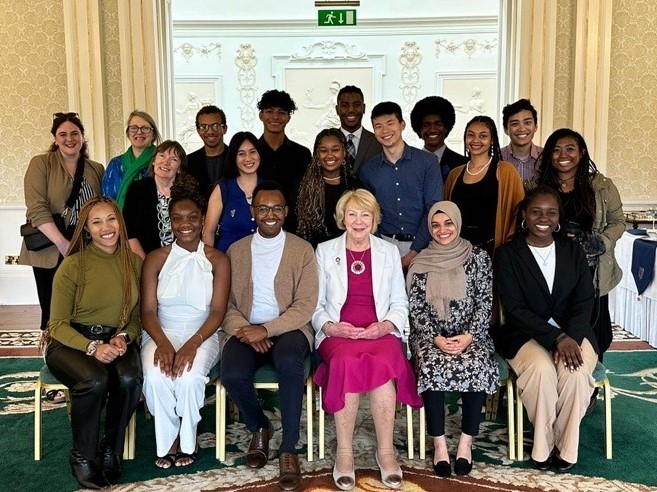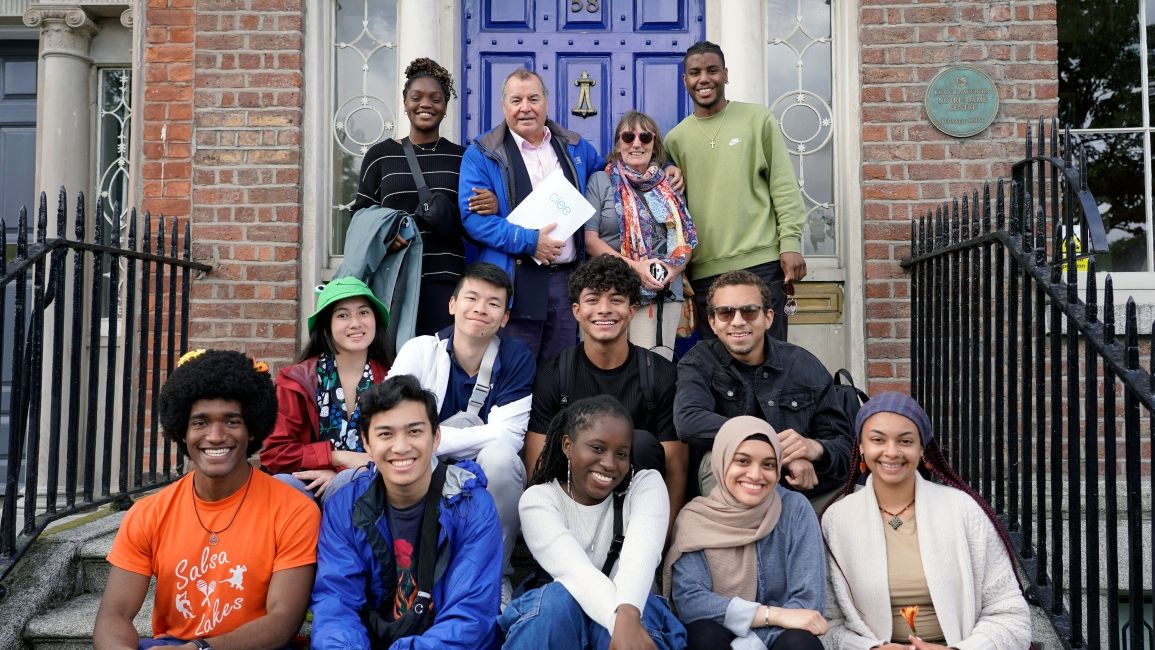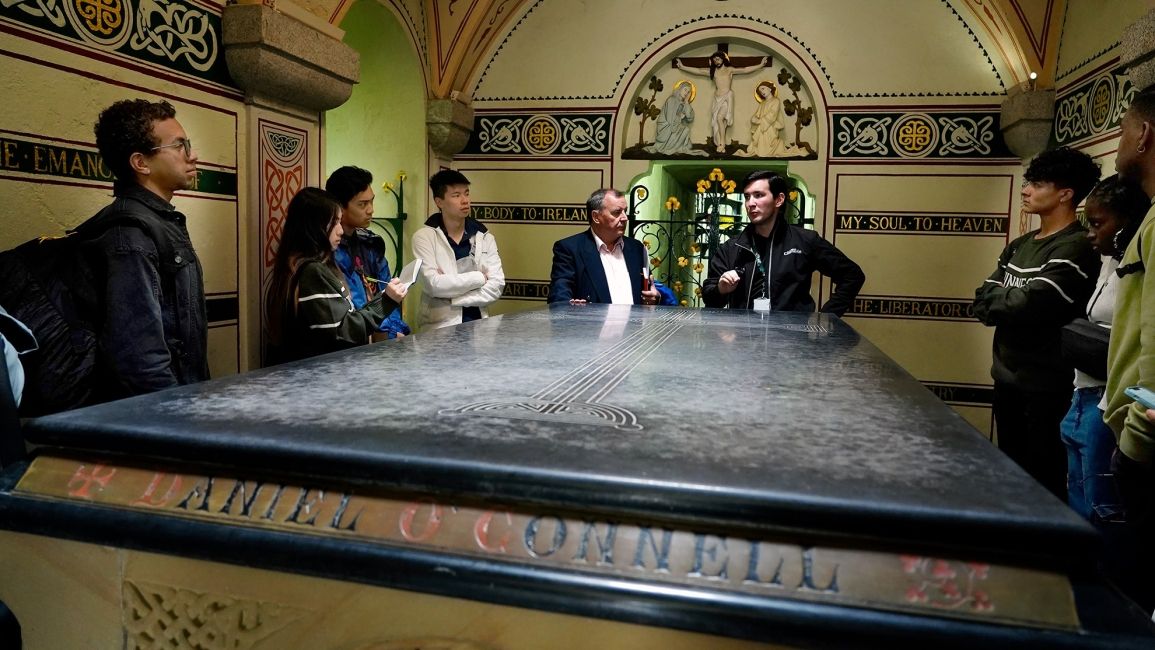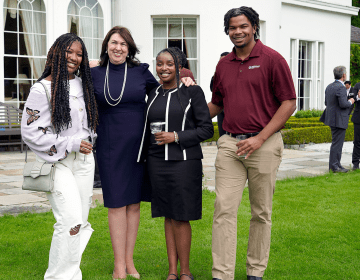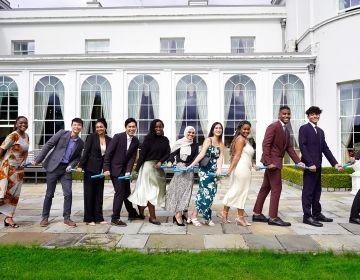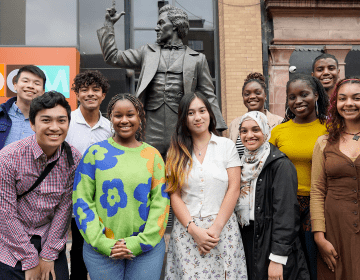CIEE Frederick Douglass Global Fellows Visit Ireland and Northern Ireland to Continue their Comparative Study of Social Justice Leadership
The 2023 cohort of Frederick Douglass Global Fellows are in Ireland for the final leg of their four-week, three-continent comparative study of social justice leadership that began in Washington D.C., took them to South Africa, and will continue in Dublin, Derry, and Belfast.
The Government of Ireland is cosponsoring the 2023 Frederick Douglass Global Fellows in honor of the meeting in Dublin in 1845 between 27-year-old abolitionist Frederick Douglass and the great Irish reformer Daniel O’Connell. O’Connell is credited with influencing Douglass’ worldview and expanding his life’s work to agitate against all forms of social injustice.
Just as Frederick Douglass was transformed by his visit to Ireland in 1845 and his encounter with Daniel O’Connell, the Frederick Douglass Global Fellows are having transformative international experiences as they study historic changemakers, including Daniel O’Connell, Frederick Douglass, Abraham Lincoln, John Lewis, John Hume, Nelson Mandela, Archbishop Desmond Tutu, and other giants of social change, with a focus on how they influenced one another and continue to impact today’s social justice movements.
While in Ireland and Northern Ireland, the Frederick Douglass Global Fellows are being led by Don Mullan, author of Eyewitness Bloody Sunday, and Dr. Christine Kinealy, a historian and Frederick Douglass scholar. The instructors kicked off the Fellows’ time in Ireland by leading them in a walking tour of central Dublin, following the footsteps of Frederick Douglass. They then continued to orient the students to the Irish context with a look at precolonial Irish history in a visit to Trinity College and the Book of Kells exhibition.
Other program highlights in Dublin included reflection at the memorial created in remembrance of the Great Famine during which Ireland lost half its population to death or emigration; a visit to Kilmainham Gaol, an 18th century prison that housed a ‘who’s who’ of Irish revolutionary leaders; and a tour of Glasnevin Cemetery and Museum where the Fellows visited the Daniel O’Connell Monument and burial site, and the grave of Countess Markievicz, an Irish revolutionary and the first woman elected to British Parliament.
Fellows also were guided in contemplation of one of the burning issues confronting public sector leadership in our time – mass migration. First, they had a guided tour of the Epic Migration Museum, then they had the opportunity to engage in a roundtable discussion with refugees and asylum seekers, members of An Garda Siochana (the national police force), and anti-immigration campaigners.
The Fellows visited Aras An Uachtarain, the official residence of the President of Ireland, formerly the Vice Regal Palace, where Daniel O’Connell made an unsuccessful appeal in 1845 to have the ports closed to food exports. While there, they had the honor of meeting Sabina Higgins, the spouse of the President of Ireland.
The Fellows are currently in County Mayo where they have toured the National Famine Museum; walked part of the route of the annual Famine Walk; and visited the Michael Davitt Museum, honoring the life of an historic activist and champion of non-violent resistance. On Friday, the Fellows are traveling on to Derry, where they will spend several days learning about the impact of The Troubles before continuing their study in Belfast.
Related Posts
AAIDN/CIEE Intern Scholars Reflect on Global Internship Program in Ireland
The inaugural cohort of AAIDN/CIEE Intern Scholars in Ireland have completed their internships with employers in Dublin, Ireland. The AAIDN/CIEE Intern Scholars in Ireland program was created by the African... keep reading
CIEE Frederick Douglass Global Fellows Conclude Program with Celebration at U.S. Ambassador's Residence in Dublin
Above: The 2023 Frederick Douglas Global Fellows at the farewell event hosted at the U.S. Ambassador's Residence at Phoenix Park in Dublin. They are passing commemorative batons in reference to... keep reading
CIEE Frederick Douglass Global Fellows Attend Unveiling of Frederick Douglass Statue in Belfast
The 2023 cohort of Frederick Douglass Global Fellows were honored guests at the unveiling this week of the Frederick Douglass statue commissioned by the Belfast City Council and the Department... keep reading
